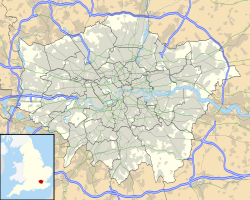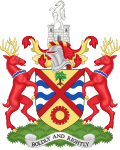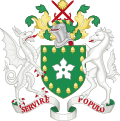| Longlands | |
|---|---|
Location within Greater London | |
| Population | 10,442 (2011 Census. Ward) [1] |
| OS grid reference | TQ449722 |
| London borough | |
| Ceremonial county | Greater London |
| Region | |
| Country | England |
| Sovereign state | United Kingdom |
| Post town | SIDCUP |
| Postcode district | DA14, DA15 |
| Post town | LONDON |
| Postcode district | SE9 |
| Dialling code | 020 |
| Police | Metropolitan |
| Fire | London |
| Ambulance | London |
| UK Parliament | |
| London Assembly | |

Longlands is an area of South East London that straddles the boundaries of the London boroughs of Bexley, Bromley and Greenwich. It lies north west of Sidcup and south east of Eltham.
Contents
Some old maps and records have the name as two words "Long Lands", and show it was in the Foots Cray/Sidcup parish [2] in the Hundred of Ruxley. [3]







